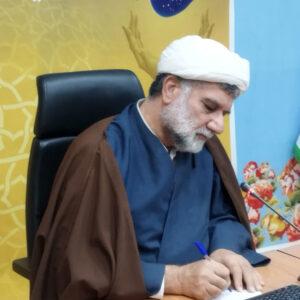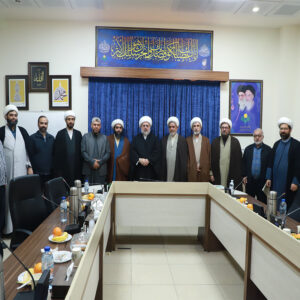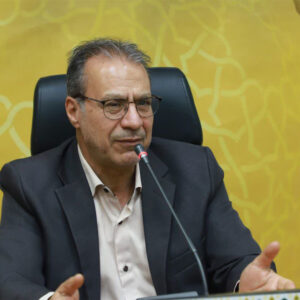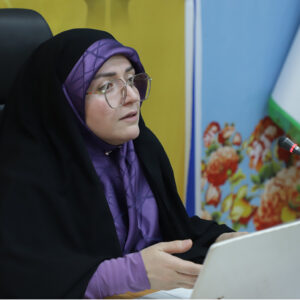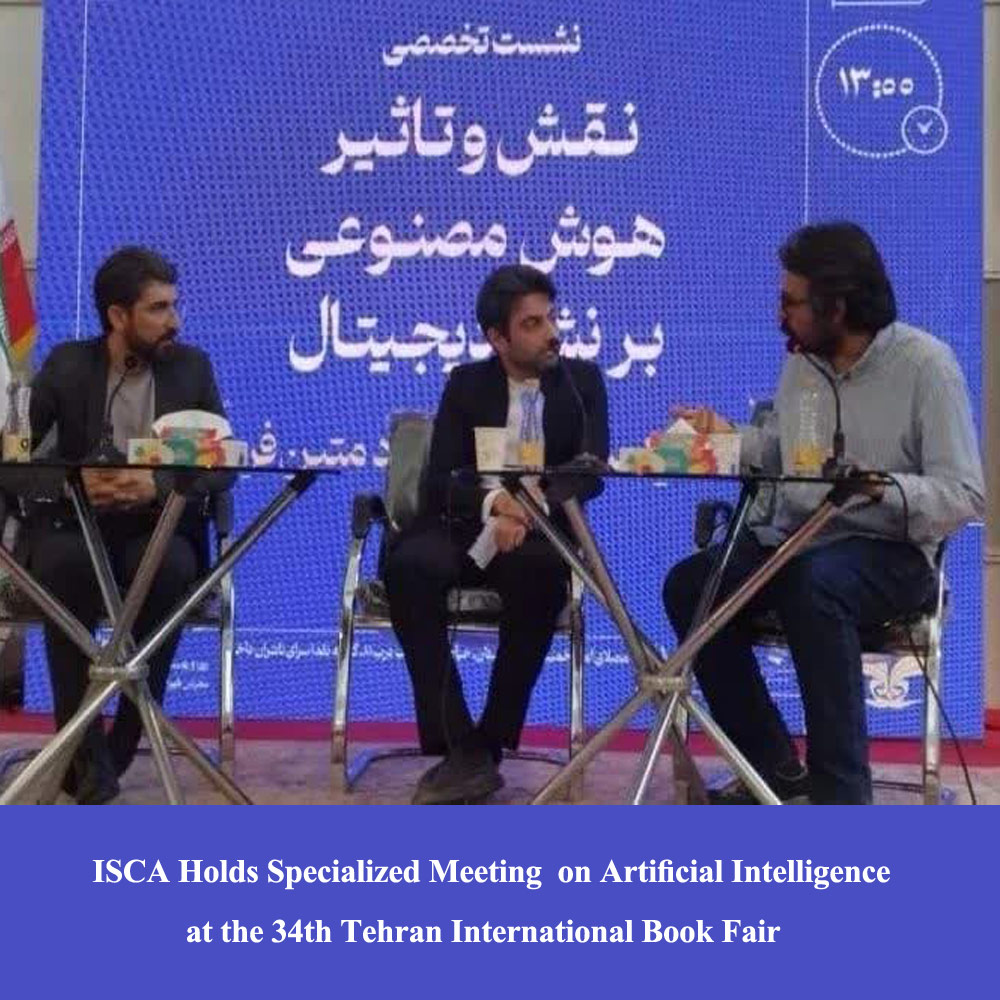According to the Public Relations Office of ISCA, the specialized meeting on “The Role and Impact of Artificial Intelligence on Digital Publishing” was held and organized by ISCA at the 34th Tehran International Book Fair in the Corner Hall of Criticism. Dr. Ali Mirarab, faculty member and associate professor of Islamic Sciences and Culture Academy, and Dr. Mahmoud Matinfar, university lecturer and director of Pajoohaan Mobile Book Reader were the lecturers of the meeting.
First, Ali Mirarab referred to Iran’s position in the field of artificial intelligence and said, “Iran is among the first 16 countries in artificial intelligence in terms of science and theory. In terms of theory and production, it is among the first 10 countries in the world, but in terms of application, it is among the first 75 countries in the world.”
He then went on to say, “There are various reasons for this rank in the field of application. In the first stage, researchers work in the theoretical field. In the next stage, when these researches are going to enter the industry, data, analysis, and more hardware are needed, and this fact challenges the process.”
The faculty member of Islamic Sciences and Culture Academy continued to say, “Another reason is the consumer’s opposition to this technology, because many times the culture makes it hard to accept a new technology. Now imagine that this new technology is artificial intelligence that brings about many challenges. Of course, there is also a negative view of this technology.”
He stated, “ChatGPT, which has been very popular recently, makes everyone have a mobile phone in his or her hand and asks the chat, and in the future we can see more and more use of it.”
Then, Mahmoud Matinfar, the director of Pajoohaan Mobile Book Reader started his speech and stated, “Our lives have been greatly affected by technology, and this effect is also evident in the field of publishing. Digital book is a well-known issue. In Iran, we also see digital publishing with existing platforms, but the issue here is the trust of publishers. Publishers have not yet been able to adapt themselves to new technologies such as digital publishing.”
He also said, “Experience has always shown that technology has helped mankind more than the fear it creates, and in the area of publishing, artificial intelligence helps us publish books faster. It also provides statistical analysis of sales and investment.
He further stated, “Digital publishing has benefits because there is no issue of paper, it is cheaper to supply and the environment remains safer. Easier accessibility, the possibility of use at any time and place and for publishers in a wider range, are some other benefits of digital publishing.”
Matinfar went on to say, “We started launching Pajoohaan Mobile Book Reader in 2016 and no matter how much we explained to the publishers, they said what is the guarantee that the content of the book will not be leaked and even now there is no such trust or they give the information of their old books. But then they saw that their economic interests are gradually increasing with the digital book.”
Finally, Dr. Mirarab told the audience at the meeting, “We can estimate financial waste with artificial intelligence in the Ministry of Culture and Islamic Guidance and examine where we can make better investments and have purposeful production. In fact, artificial intelligence can be more of a friend and helper than being scary. In this regard, the opinion of scientific people about artificial intelligence should be used, not successful people in business who are afraid of artificial intelligence and the possible damage to their business.”
Source: Islamic Sciences and Culture Academy

